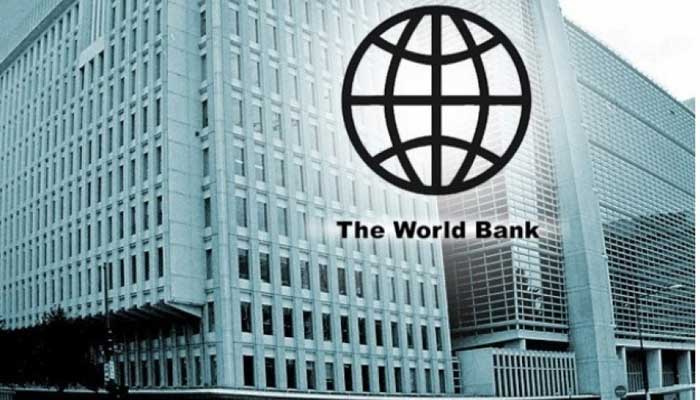Legal loopholes, low morale expand tax evasion in Pakistan: World Bank
KARACHI: The World Bank said tax evasion in Pakistan is pervasive due to low tax morale and legal loopholes that enable high-value individuals to conceal their incomes.
“Income tax receipts come from a small number of taxpayers due to generous thresholds for individuals and widespread tax evasion,” the World Bank said in a document last month following its study that found half of the country’s revenue potential was untapped. “Pakistan’s tax revenue potential would reach 26 percent of GDP, if tax compliance were to be raised to 75 percent.”
The Washington-based lender said legal loopholes facilitate tax evasion. “The Law on Benami Transactions of 2016, which prohibits anonymous transactions, could have closed one of the major loopholes,” it said in the document, “Pakistan Revenue Mobilization Project”.
“It has not however been implemented because secondary regulations have not been approved.”
Prize bonds – a large source of domestic borrowing for the government – are instrument of choice for investing funds of unexplained origin as they are anonymous and tax exempt.
Low taxes on immovable property also offer opportunities for tax evasion and money laundering.
The World Bank said Pakistani citizens think of themselves as taxpayers, even though they pay indirect taxes on their consumption.
“Taxation is not widely considered as a civic duty and essential to finance public services,” it added. “In turn, better-off households generally do not rely on public education or health services and have little stake in paying taxes to finance better public service provision.”
The lender said the country’s tax system is regressive due to its reliance on indirect taxes and the collection of most income taxes through withholding agents. In FY2017/18, 60 percent of income tax receipts were collected by withholding agents such as banks, telecom and utility companies, and car dealerships.
“This is a primarily due to the limited capacity of the tax administration to identify unregistered firms and individuals with incomes above the taxable threshold,” it said. “This capacity constraint has driven the FBR (Federal Board of Revenue) to rely on withholding agents to collect the bulk of income tax.”
Withholding agents are required to levy income tax on transactions at the same time as general sales tax. Income tax collected in this manner essentially becomes an indirect tax.
The World Bank said individuals with incomes below the income tax threshold and who have income tax withheld on their transactions (payment of utility bills, banking transactions) would need to file income tax returns to have the withheld tax refunded, “but in practice this is very onerous”. “The same applies to income tax filers who may claim a deduction of the withheld tax from their total income tax liability at the end of the fiscal year,” it added. “For higher income non-filers, paying the withholding tax might well be advantageous compared to filing income tax with FBR.”
The lender said the withholding regime is also problematic due to the administrative burden it places on businesses obliged to withhold taxes, as well as due to distortions on economic actors’ incentives.
“The requirement on retailers, wholesalers, and service providers to withhold GST and income taxes is a large part of the compliance burden on these taxpayers,” it added.
“The withholding regime for income tax also contradicts other policy objectives, notably expanding the formal economy and strengthening the financial system.”
-
 It's A Boy! Luke Combs, Wife Nicole Welcome Third Child
It's A Boy! Luke Combs, Wife Nicole Welcome Third Child -
 Leading Astrophysicist Shot Dead At Southern California Home
Leading Astrophysicist Shot Dead At Southern California Home -
 Johnny Depp's Kind Gesture Towards Late 'Grey's Anatomy' Actor Eric Dane Before Death Laid Bare
Johnny Depp's Kind Gesture Towards Late 'Grey's Anatomy' Actor Eric Dane Before Death Laid Bare -
 How Princess Eugenie, Beatrice React To Andrew Arrest?
How Princess Eugenie, Beatrice React To Andrew Arrest? -
 Kylie Jenner 'convinced' Gwyneth Paltrow Is 'crushing' On Timothee Chalamet: 'It's Disrespectful'
Kylie Jenner 'convinced' Gwyneth Paltrow Is 'crushing' On Timothee Chalamet: 'It's Disrespectful' -
 Jemma Chan Reflects On 'difficult Subject Matter' Portrayed In 'Josephine'
Jemma Chan Reflects On 'difficult Subject Matter' Portrayed In 'Josephine' -
 Blood Falls In Antarctica? What Causes The Mysterious Red Waterfall Hidden In Ice
Blood Falls In Antarctica? What Causes The Mysterious Red Waterfall Hidden In Ice -
 AI Power Play: Nvidia Moves To Invest $30 Billion In OpenAI
AI Power Play: Nvidia Moves To Invest $30 Billion In OpenAI -
 Will Savannah Guthrie Ever Return To 'Today' Show? Here's What Insiders Predict
Will Savannah Guthrie Ever Return To 'Today' Show? Here's What Insiders Predict -
 Andrew Mountbatten-Windsor In A Fix Over New Disturbing TMZ Photos
Andrew Mountbatten-Windsor In A Fix Over New Disturbing TMZ Photos -
 Eric Dane Opened Up About Releasing His Memoir Just Two Months Before His Death Due To ALS Complications
Eric Dane Opened Up About Releasing His Memoir Just Two Months Before His Death Due To ALS Complications -
 Zendaya, Tom Holland Already Married? Actress Shows Off New Ring
Zendaya, Tom Holland Already Married? Actress Shows Off New Ring -
 King Charles Holds Emergency Meeting After Andrew Arrest: 'Abdication Is Not Happening'
King Charles Holds Emergency Meeting After Andrew Arrest: 'Abdication Is Not Happening' -
 Amazon Can Be Sued Over Sodium Nitrite Suicide Cases, US Court Rules
Amazon Can Be Sued Over Sodium Nitrite Suicide Cases, US Court Rules -
 'Vikings' Star Mourns Eric Dane's Death
'Vikings' Star Mourns Eric Dane's Death -
 Patrick Dempsey Reveals Eric Dane's Condition In Final Days Before Death
Patrick Dempsey Reveals Eric Dane's Condition In Final Days Before Death




